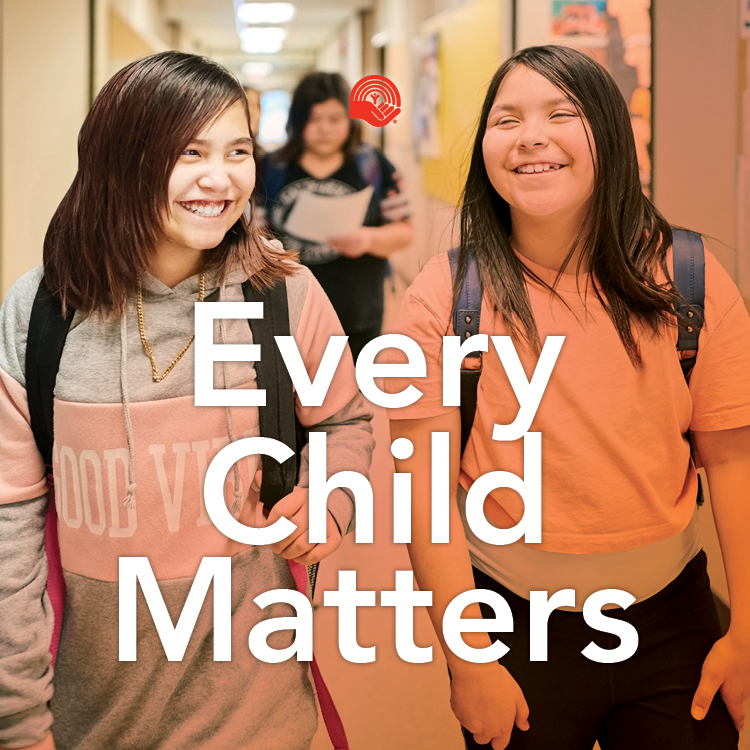


Quote to reflect on to begin your day:
"[It's] not a day of celebration, but a day to allow all Islanders to pause in respect of Epekwitnewaq Mi'kmaq and all Indigenous people of this country who continue to suffer the lasting impacts of the residential school’s policy. We must make time to look, to listen and learn the hard truths that have been hidden for too long, and reflect on what that means for us today." - Chief Darlene Bernard of Lennox Island First Nation
Digital Learning Opportunities & Events:
The NCTR is a place of learning and dialogue where the truths of the residential school experience will be honoured and kept safe for future generations. The NCTR was created as part of the mandate of the Truth and Reconciliation Commission of Canada (TRC). The TRC was charged to listen to Survivors, their families, communities and others affected by the residential school system and educate Canadians about their experiences.Indigenous Canada is a 12-lesson Massive Open Online Course (MOOC) from the Faculty of Native Studies that explores Indigenous histories and contemporary issues in Canada. From an Indigenous perspective, this course explores key issues facing Indigenous peoples today from a historical and critical perspective highlighting national and local Indigenous-settler relations. Topics for the 12 lessons include the fur trade and other exchange relationships, land claims and environmental impacts, legal systems and rights, political conflicts and alliances, Indigenous political activism, and contemporary Indigenous life, art, and its expressions.
Indian Residential schools operated in Canada from 1831 until 1996. An estimated 150,000 Indigenous children were taken from their homes and forced to attend these schools. In this webinar, Residential School Survivor, Elder Margaret Poulette will share her first-hand story of what it was like to attend one of these schools. Margaret Poulette, Elder, Residential School Survivor and Rosie Sylliboy, Manager, Mawita’mk & Margaret’s Daughter
The sessions are categorized into 4 series:
Join the Prairie Federal Council and the Canada School of Public Service for an event on the lived experiences of residential school Survivors and their communities. Guest speakers will share their thoughts and insights on what those experiences mean for Indigenous Peoples in Canada and for us all as we continue the journey towards truth and reconciliation.
Local Organizations and Events:
L’nuey is an initiative focused on protecting, preserving, and implementing the constitutionally entrenched rights of the Mi’kmaq of Prince Edward Island, Epekwitk. This will be particularly important as we begin the process of determining how our people can benefit from our rights as we begin negotiations through the Mi’kmaq-Prince Edward Island-Canada Framework Agreement. The Framework Agreement affirms the historic Mi’kmaq treaties and commits the Federal and Provincial governments to respectful and cooperative negotiations with the Mi’kmaq to deal with our outstanding Aboriginal and treaty rights claims. Click the link above to learn more about L’nuey and how you can support local.
They are a social enterprise looking to make a difference. Their mission is to create high-quality clothing that promotes Mi'kmaq culture and builds community capacity by providing meaningful Indigenous employment and skills development. They believe education is the key to achieving reconciliation and are striving to build cultural awareness one design at a time. Check out the Kwe’ collection HERE
Bronson Jacque, an Inuit visual artist from Postville, Nunatsiavut, was commissioned in 2021 by the Aboriginal Women’s Association of Prince Edward Island to paint a commemorative group portrait depicting family and friends of missing and murdered Indigenous women and girls. Each portrait subject has an object that represents a missing loved one to emphasize they are not just statistics; they are mothers, daughters, aunts, cousins, friends, and family. The artist intended to show the family left to mourn; the people impacted by the loss. Every missing and murdered Indigenous woman and girl should still be with their families, they should still be living their lives.
Julie Bull’s exhibit Settle Down, Settlers! will open at the Kings Playhouse gallery in Georgetown on September 29 at 7 pm. The opening will include a welcome featuring Julie Pellissier-Lush, a spoken-word performance by Bull accompanied by various local actors, including Adam Brazier and Rory Starkman, a small Indigenous artisan’s market, food, refreshments, resources, and the full art exhibit, which will be on display until November 6.
Quote to reflect on at the end of the day:
“It is my hope that people will take more than just the day on September 30th to think deeply and critically about the history of residential schools in our country and the ongoing devastating impacts." - Chief Junior Gould of Abegweit First Nation